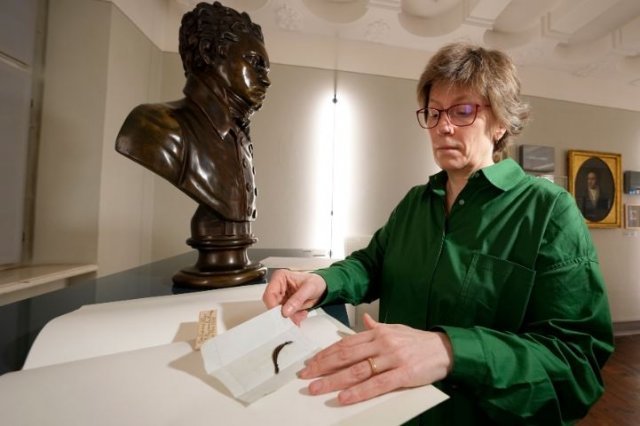The cause of death of the great musician Ludwig van Beethoven (1770-1827) was revealed through ‘genome analysis’ of hair about 200 years after his death. Several hypotheses, such as lead poisoning, have been raised, but it is estimated that he died of hepatitis B infection, a genetic liver disease, and cirrhosis of the liver due to continuous drinking.
Tristan Beg, a researcher at the Department of Archeology at the University of Cambridge in England, and collaborating researchers, including University Hospital Bonn in Germany, published their research results on the 22nd (local time) in ‘Current Biology,’ a sister journal of the world-renowned academic journal ‘Cell’.
They analyzed eight locks of hair known to be Beethoven’s and were convinced that five of them were Beethoven’s. A subsequent hair analysis confirmed that Beethoven had been infected with hepatitis B at least a few months before his death. In addition, a genetic predisposition to liver disease was also discovered. In addition to Beethoven’s persistent drinking history, which was widely known, the research team revealed that Beethoven was believed to have died of cirrhosis of the liver.
“The degree of involvement of each factor remains to be determined through future studies,” Beg said. A close friend of Beethoven’s past stated that Beethoven drank a liter of wine every day for a year before his death. There are also documents documenting Beethoven’s family history of alcohol dependence and liver disease.
 An official from Beethoven’s birthplace in Bonn, Germany, shows a lock of Beethoven’s hair that was used for Beethoven’s genome analysis. Seen = AP Newsis
An official from Beethoven’s birthplace in Bonn, Germany, shows a lock of Beethoven’s hair that was used for Beethoven’s genome analysis. Seen = AP NewsisBeethoven, who died at the age of 57, asked his favorite doctor to reveal his illness after death. Accordingly, several experts have attempted to identify the cause of death by analyzing various literature related to Beethoven, such as autopsies, letters, diaries, and medical records. Previously, rumors of death from ‘lead poisoning’ were raised through toxicological analysis of a skein of his hair. However, through this study, it was confirmed that the strand of hair that served as the basis for the lead poisoning theory belonged to a Jewish woman, not Beethoven.
The cause of Beethoven’s deafness is also a major subject of investigation, but it was not revealed in this study. However, co-researcher Dr. Axel Schmidt of the Institute of Human Genetics at Bonn University Hospital said, “As the reference data essential for genome interpretation are constantly being improved, new clues to hearing loss may be discovered in the future.”
In addition, a Belgian family that shared the surname Van Beethoven and claimed to be descended from it revealed that, as a result of genome analysis, there was no genetic relationship to Beethoven. However, it was concluded that these five family members are likely to be the out-of-wedlock children of Beethoven’s direct paternal ancestors. The New York Times (NYT) reported that the families who heard about this from the research team were shocked to lose part of their identity.
“By making Beethoven’s genome publicly available to researchers and adding his real hair, we hope that one day we will be able to answer some of the remaining questions about his health and genealogy,” Beg said.
Source: Donga
Mark Jones is a world traveler and journalist for News Rebeat. With a curious mind and a love of adventure, Mark brings a unique perspective to the latest global events and provides in-depth and thought-provoking coverage of the world at large.